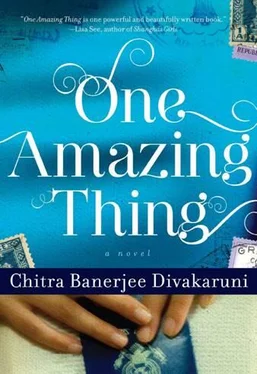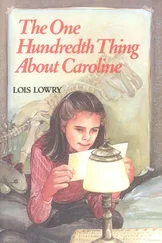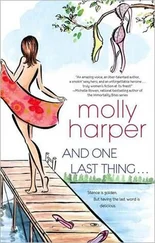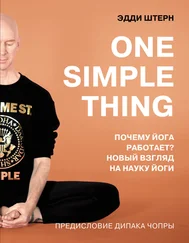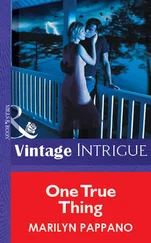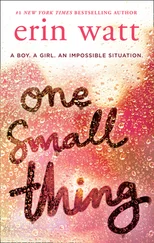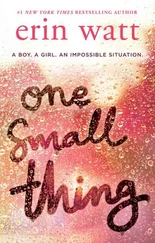It’s perfect, Mrs. Pritchett wanted to say, trying to forestall her younger self. Let’s go for it! But in the memory, Vivienne raised her face, flushed with happiness and guilt, and Mrs. Pritchett knew with a sinking of the heart that she was going to turn her best friend down.
A LITTLE WHILE AGO, MRS. PRITCHETT HAD BEEN DISTRAUGHT because time was running out. What if she died before she got to tell her story? Now, having taken her pills, those small, round blessings, those miracles of science, in the privacy of the bathroom, she was equanimous and expansive. At the hospital, before leaving, the night nurse had said to her, If not in this life, then the next . Mrs. Pritchett repeated the statement to herself like a mantra. Even Mr. Pritchett’s announcement that he had constipation and would require more time in the bathroom, so could they please go back to their seats and give him some space, had failed to embarrass her.
But as she waded back to her desk, several realizations struck her. First, Mr. Pritchett never had constipation. Second, the door to the bathroom was being pushed shut, gradually and with great effort. Third, the odor that had been tugging at her subconscious was gas. Fourth, when Cameron had demanded Mr. Pritchett’s smoking supplies, Mr. Pritchett hadn’t been surprised. He had acted angry, but it hadn’t been the real thing.
She grabbed the arm of the person closest to her, who happened to be Mr. Mangalam. “I think Mr. Pritchett’s planning to smoke in there,” she whispered (she couldn’t bear to betray her husband to the whole company). “You’ve got to stop him-I smell gas.”
Mr. Mangalam sloshed through the water, as swiftly and gracefully as anyone could, and threw himself at the half-shut door. Mrs. Pritchett’s stomach knotted with dread as the door resisted. But finally it swung in with reluctance, bumping Mr. Pritchett, catching him in the act of lighting a cigarette. He staggered sideways, cigarette and matchbox flying from his hand and into the water. Mr. Mangalam landed on top of Mr. Pritchett. Both were soaked through immediately. Mrs. Pritchett saw Mr. Pritchett swing a fist at Mr. Mangalam’s head, but his heart must not have been in it; Mr. Mangalam avoided it easily. Mrs. Pritchett was afraid Mr. Mangalam might hit back, but he pulled himself up heavily, using the sink as support, and then helped Mr. Pritchett to his feet.
The men made their dripping, shivering way back to the desks. Mr. Mangalam mumbled something about having tripped in the dark. Mrs. Pritchett saw disbelieving looks, but no one wanted to pursue the matter. His voice an amphibian croak, Cameron instructed the two men to get out of their wet clothes. People gave them the blue rags to wipe themselves down, then handed over all the disposable tablecloths and any clothing they could spare. Cameron and Tariq took off their undershirts. Mrs. Pritchett insisted on giving Mr. Pritchett her sweater, and Tariq fetched the prayer shawl he had in his briefcase: he had put it up on the counter a long time back, Alhamdulillah, without thinking about it. He put the shawl into Mangalam’s hands. Everyone looked away as the men changed into their motley wear and spread their wet clothes over the file cabinets-a futile act. Nothing would dry in this damp mausoleum.
The thin ray of light from the hole in the ceiling was fading. Uma asked Cameron if he wanted to tell the next story. She was afraid he might not have the strength to do it later. But Cameron pointed to Mangalam. Mangalam’s teeth were still chattering. He would need a few minutes. Mrs. Pritchett searched in her purse and came up with a travel-size bottle of lotion, which she rubbed as vigorously as she could into both men’s hands. At first Mr. Pritchett made as though to pull away, but then he allowed his wife to chafe some heat into his palms. A faint smell of lavender spread through the room, reminding Uma that it had been her mother’s favorite scent. Before her mother’s birthday, Uma and her father would go to a specialty store downtown and get her a big bottle of lavender water from France. She remembered the heft of the bottle, its elongated, dark blue neck. Somehow, when she was in high school, the tradition had foundered. Uma couldn’t remember why.
“You wouldn’t happen to have your flute, would you?” Tariq asked Lily.
“I do,” she said. She felt around in her backpack, which she had placed behind her, and took out the slender silver instrument.
“Are you sure?” she asked. “It’ll use up oxygen.”
Tariq urged her on with a small jerk of his chin, and no one objected. She played a melody, short and serene, and the light fell through the ruins above them and shone on her for a few seconds before it died away.
Iwas born into a poor family in a small South Indian town, the first son after three daughters. Upon examining my birth stars, the astrologer told my parents that I would rise high in the world, and that my face would be my fortune. Interpreting this to mean that they would rise with me, my delighted parents made sure I received the best of everything as I was growing up-from extra helpings of food to new clothes on Pongal to fees for the best school in the area-even if it meant that my sisters had to do without. As you might imagine, I grew up spoiled, believing that I deserved everything my parents scraped together for me. In my defense, however, I should inform you that I was the sharpest child in my school and possibly the most handsome. And though I could have done well in class without expending much effort, I pushed myself to excel because I took seriously my role as savior of my family.
My hard work paid off: I received a generous scholarship to one of the leading universities located in faraway Delhi. I began my college career by studying assiduously and ranking high in exams, but I quickly realized that academic achievements were not enough to open the door to true success. The offices of the city were filled with brilliant men rotting in mediocre positions. I was determined not to become one of them. I could not afford to. Although the family never brought up the matter, I knew they were waiting for the long investment they had made in me to pay off. Two of my sisters were still unmarried, and with every passing year their chances of finding a husband shrank-unless we could dangle a substantial dowry as bait. My grandmother suffered from a kidney problem that would soon require expensive treatment. The old family home was falling apart. My father patched the roof each monsoon season and waited stoically for the day of my graduation. The only person who didn’t seem to want something from me was my mother. Maybe because of that, I wanted to give her something. I settled on a pair of gold bangles. (She had sold hers to buy me clothes for college.) On my way back from classes, I often paused outside the local jeweler’s window, evaluating patterns, imagining the look on her face when I presented her with the velvet box.
BUT FIRST I HAD TO FIND THE RIGHT KIND OF JOB. TO DO THAT, I needed to know-and know intimately-people in high places. I researched where such people were to be found. Several of the venues, such as the Tennis Club or the Polo Club, required expensive skills that I lacked. Finally, I discovered the Film Club.
At the Film Club the children of the rich-some of whom had aspirations toward stardom and others who fancied themselves future directors and critics-congregated twice a month to watch and discuss foreign movies that the father of one of the members procured through his connections. I made it a point to read up on the movies ahead of time so that I could make intelligent and occasionally provocative comments about them. (In the course of this activity, I discovered, to my surprise, that I enjoyed reading.) In a short while, I was considered an expert in many fields, and Film Club members sought my opinion on various issues. People liked my looks, too-my fresh countenance and my athletic physique, which I maintained through a careful exercise regimen.
Читать дальше
